Yunnan Baoshan coffee tin card variety Baoshan small-grain coffee beans how to make not bitter?
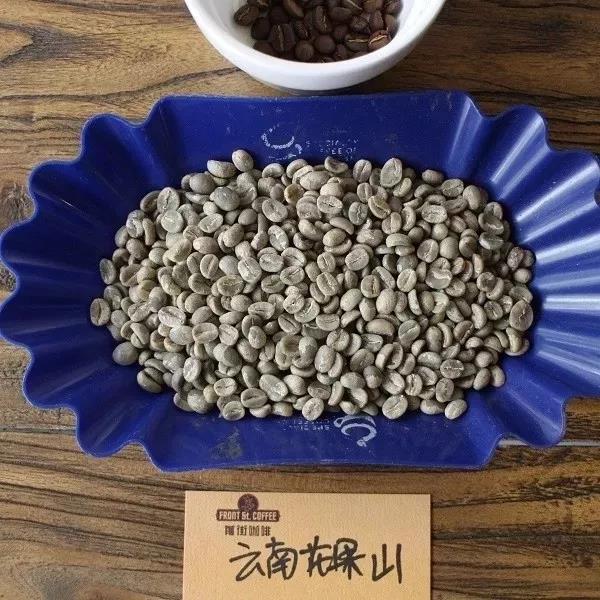
Professional coffee knowledge exchange more coffee bean information please follow the coffee workshop (Wechat official account cafe_style)
History of Coffee cultivation in Yunnan
Yunnan, as the largest coffee producing area in China, Starbucks, Nestl é and other large coffee enterprises have smelled its great potential.
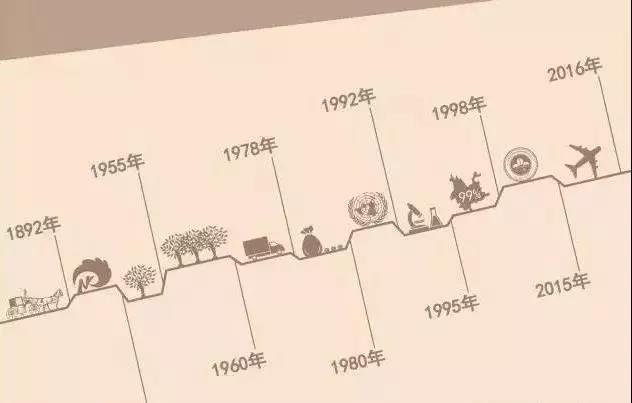
History can be traced back to 1892. More than 100 years ago, French missionary Father Tian Deneng planted the first coffee tree in Zhukula Village, Binchuan County, Dali-which is generally traced back to the earliest record of coffee introduced into Yunnan. Coffee trees did not grow in the region for the next 100 years, and it was not until multinational corporations entered Yunnan in the late 1980s that the exotic was replanted and exported to the world.
After 1930, Mr. Liang Jinshan, a famous overseas Chinese leader, brought coffee to Pudong and Luoming for planting until the founding of the people's Republic of China. After 1952, under the guidance of experts in Baoshan, Lujiang and other places began to grow a large number of coffee, and the history of large-scale cultivation has been nearly 60 years.
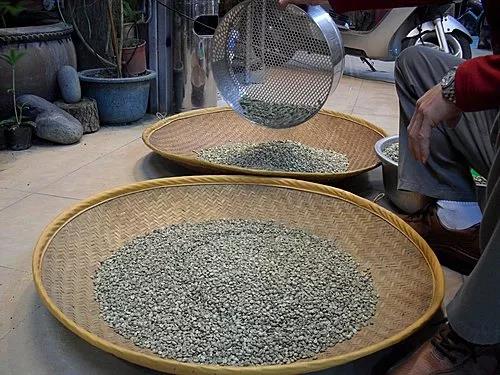
By the end of 1997, the planting area of coffee in the province had reached 7800 hectares. At present, the planting area of the province accounts for 70% of the national area, and the output accounts for 83% of the whole country. Yunnan coffee has established the dominant position in China in terms of planting area and coffee bean production.
Appendix: the epoch of coffee knot in Yunnan
The first stage: in the 1880s, the Qing government was forced to sign a treaty with France to end the Sino-French war and opened Mengzi (Mengzi County, Honghe Prefecture) as a trade port. In 1889, Mengzi customs switch opened the prelude to the exchange between the southwest border and the outside world, and foreign businessmen gathered and foreign firms came one after another.
The second stage: in 1902, a French missionary named Tian Deneng brought coffee from Vietnam to grow coffee in a mountain village called Zhu Kula in Binchuan County, Dali, Yunnan Province. Today, the offspring of that batch of coffee are still alive, and the ancient coffee forest tells the story of a hundred years in the morning dew and sunset.
The third stage: in 1952, experts from Yunnan Academy of Agricultural Sciences distributed 80kg coffee seeds to farmers in Lujiangba, Baoshan, and then guided planting on a large scale a few years later, which led to the coffee trees swaying along the Yunnan-Burma Road. Coffee cultivation in Yunnan has developed rapidly due to the huge demand for supply from the Soviet Union.
The fourth stage: in 1988, Nestl é set up a joint venture in China and began to support the development of the local coffee industry in Yunnan by starting a coffee planting project. Yunnan coffee rose again. Since 1992, Nestl é has established the Coffee Agriculture Department to guide and study the improvement and cultivation of coffee in Yunnan, and to buy coffee at the price of the spot market in the United States. Up to now, not only coffee giants such as Nestl é, Maxwell, Kraft and Starbucks are engaged in coffee business in Yunnan, local coffee enterprises are also gradually growing.
Yunnan coffee grading system
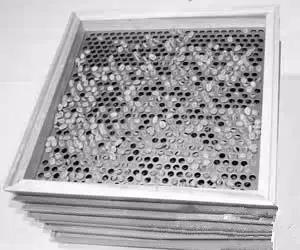
Although coffee has been grown in Yunnan for many years, it is still not mature enough. Its grading system is also relatively messy.
1) International commonly used classification standards:
According to the size of coffee beans, the round hole grading screen is used for classification. The international custom of small grains of coffee has a size of 10-20, and the number used represents the sieve aperture as the fraction with that number as the numerator and 64 as the denominator, in inches. For example: 14 refers to the raw coffee beans that can pass through a sieve with an aperture of more than 64 inches by 14thumb, and 19 refers to those that can be screened by a sieve with an aperture of more than 64 inches by 19thumb. (1 inch ≈ 2.54cm)
2) the common grading standards of domestic coffee:
According to the sieve hole 6.5, 6.0, 5.5, 5.0 mm is divided into five levels.
First class: more than 6.5mm, full and complete particles.
Second class: 6.0-6.4 mm, plump, more uniform.
Grade 3: 5.3-5.9 mm, fuller and slightly less uniform.
Level 4: 5.0-5.4 mm, with incomplete rice, accounting for more than 75% of the total.
Level 5: less than 5.0mm, incomplete rice, complete accounted for more than 30%.
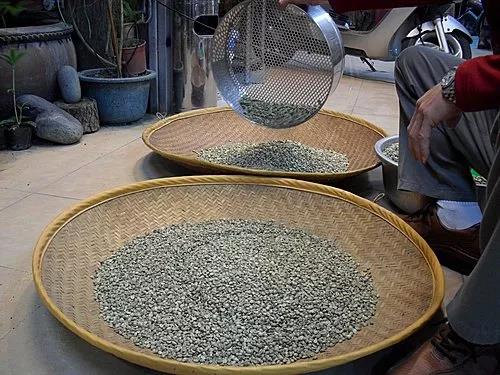
International standard rules for inspection of defects in small grains of coffee:
It is graded according to the number of defects, and is often identified by how many defects are contained in a certain coffee bean. According to the identification method of impurities and defective beans in coffee beans stipulated by the International Standards Organization, 300 grams of coffee bean samples were taken to calculate the magazines and defective beans for classification.
(source: http://www.yunnancoffee.org/ProductShow.asp?id=84)
Yunnan coffee producing area
The western and southern parts of Yunnan Province are located between 15 °N and the Tropic of Cancer, and most areas are 1000-2000 meters above sea level. The topography is dominated by mountains and slopes, with large ups and downs, fertile soil, sufficient sunshine, rich rainfall and large temperature difference between day and night. These unique natural conditions form the particularity of Yunnan small grain coffee taste-strong but not bitter, fragrant but not strong, slightly fruity.
Coffee cultivation in Yunnan is mainly distributed in Lincang, Baoshan, Pu'er and Dehong, where there are natural resources of low latitude, high altitude and large temperature difference between day and night, which makes Yunnan a golden growing area for producing Arabica coffee with high quality.
Pu 'er Tea
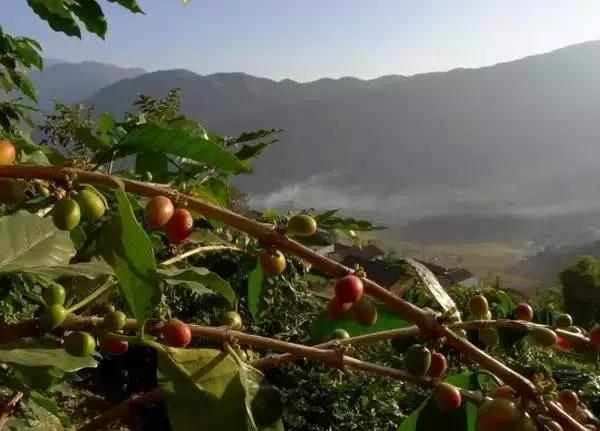
Although Pu'er City is famous for its tea, its coffee planting area has reached 789000 mu, with an output of 58600 tons and a total output value of 2.469 billion yuan, making it the largest coffee planting base in Yunnan. Its climate, geography and soil conditions are unique for growing coffee.
Pu'er coffee has a history of one hundred years. It began to be cultivated at the end of the 19th century and developed into industrialization in 1988. Now the planting area of coffee in the city has reached 767000 mu, making it the main coffee producing area and coffee trade distribution center with the largest planting area, the highest yield and the best quality in the mainland.
Pu'er Rong is known as the "coffee capital of China". In addition to becoming the main producing area of Chinese coffee, Pu'er coffee is also exported to more than 30 countries and regions, including the Americas, Europe and Asia, creating a new "black gold" market.
Lincang
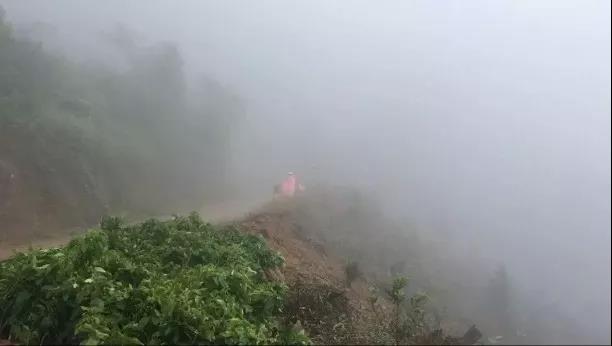
Lincang City is located in the southwest of Yunnan Province, with the Tropic of Cancer running through the south, Pu'er in the east, Dali in the north, Baoshan in the west, and Myanmar in the southwest. It is a bright pearl in the southwest of the motherland because it is close to the Lancang River. The annual average temperature in Lincang is between 16.8 ℃ and 17.2℃. The dry and wet season is obvious and the sunshine is sufficient.
Baoshan
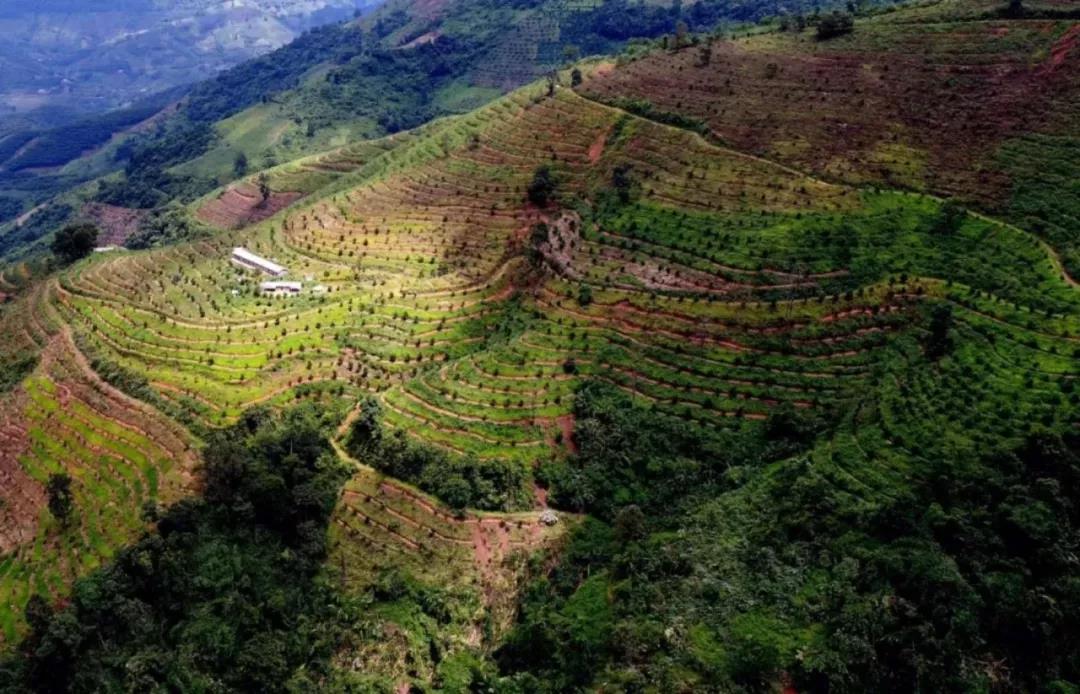
Baoshan small-grain coffee in Yunnan has a long history of cultivation. Baoshan small-grain coffee can be said to be a national geographical indication product, and it is one of the coffee with good quality in the whole country and in the world.
The average temperature of Baoshan is 21.5℃, and the highest is 40.4℃, which is basically frost-free all the year round. It is recognized as the best producing area of small-grain coffee. The small-grain coffee cultivated here is famous at home and abroad for its strong but not bitter, fragrant but not strong, well-proportioned small noodles, mellow and fruity.
Yunnan coffee treatment method
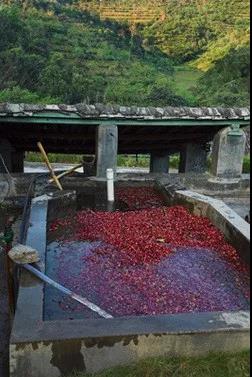
In Yunnan, the main treatment method is washing.
Use a peeling machine to separate most of the pulp from the coffee beans, then guide the shelled beans to a clean sink, soak them in water and ferment to completely remove the residual pulp layer. Through washing, unripe beans and defective beans are selected because of buoyancy, and the fermentation process is easier to control, so the flavor is not mixed like sun beans, but shows obvious acidity, complexity and cleaner characteristics in the cup.
Yunnan varieties
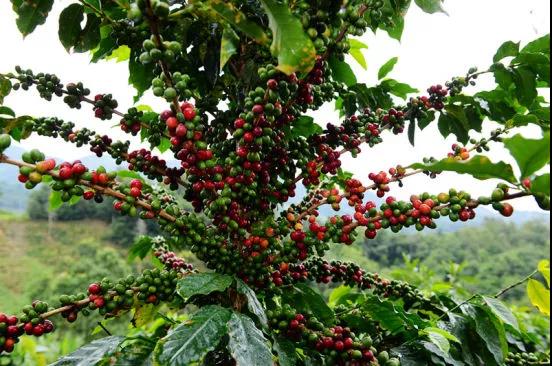
Variety
Typica and Bourbon, two classic high-quality coffee varieties, are the main coffee varieties in Yunnan. Katim Catimor series varieties (stronger anti-virus ability and higher yield) were introduced from Kenya in 1991, which is a variety of Arabica species (also known as small grain species). Because the morphology and habits of the two varieties are similar, the two varieties are mostly mixed.
Growing period
Yunnan small-grain coffee will bear fruit after 4 years.
Coffee is a sunny plant. Coffee has the characteristics of multiple flowering and concentrated florescence. The flowering period of small seed coffee in Yunnan is 2mi-July, and the flowering period is 3m-May. The flowering of coffee is greatly affected by climate, especially rainfall and temperature. The life span of coffee flowers is short, only 2 murmurs for 3 days. Small seed coffee usually opens at 3: 00 am and 5: 00 am, and blooms at 5: 00 am.
The development time of coffee fruit is longer. It takes 10 months for the fruit of small seed coffee to ripen in 10-December of the year. Rainfall has a great influence on fruit development, and climatic conditions directly affect fruit development.
Small seed coffee plant name Arabica species, is a kind of coffee, a total of more than 100 varieties.
Among them, tin pickup and bourbon are recognized as the best Arabica species in the world, and what the Baoshan people usually call "old varieties" are actually iron pickups and bourbon.
There are more Yunnan beans on the market, and the variety is Katim. [Katim] is a Robusta gene with 1go 4, which produces more fruit and is easy to grow. The 18-year-old Katim AA tastes like mugi-cha, licorice, chocolate, caramel, low texture [coffee], which is different from our [Yunnan Huaguoshan iron pickup] variety, with caramel and brown sugar flavor, and floral aroma [coffee]. Only the coffee that suits you is the right choice.
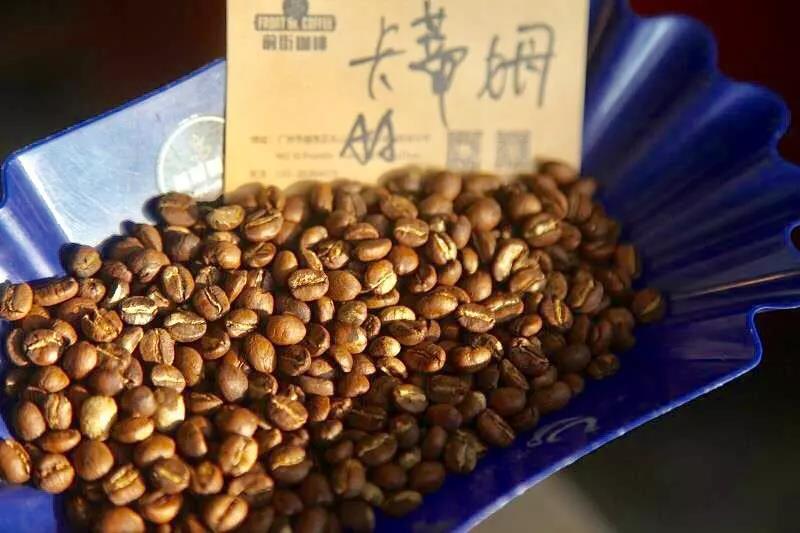
Qianjie Coffee also came to Yunnan and started our own coffee cultivation. The coffee seedlings cultivated in the nursery bed last year have now grown to 50 centimeters, and this year they can be transplanted to suitable mountains to continue to grow. In the near future, we will have our own coffee to drink.
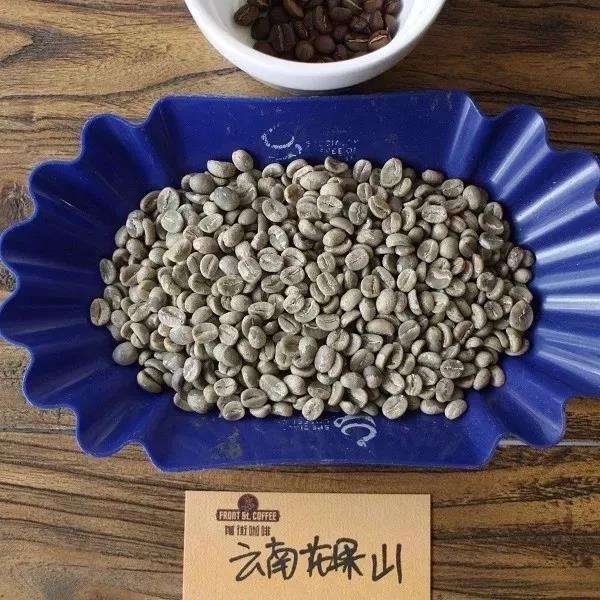
The 12000 strains we have cultivated this time are mainly Iron pickup, Bobang and Yellow Bobang. Typica and Bourbon, two classic high-quality coffee varieties, are the main coffee varieties in Yunnan. In 1991, Katimo Catimor series varieties were introduced from Kenya (with stronger anti-virus ability and higher yield). A variety of Arabian species (also known as small seed species). Because the shape and habit of this iron pickup is similar to that of Bobang, the two are mostly mixed.
Next, let's take a look at the customs of this trip to Yunnan.
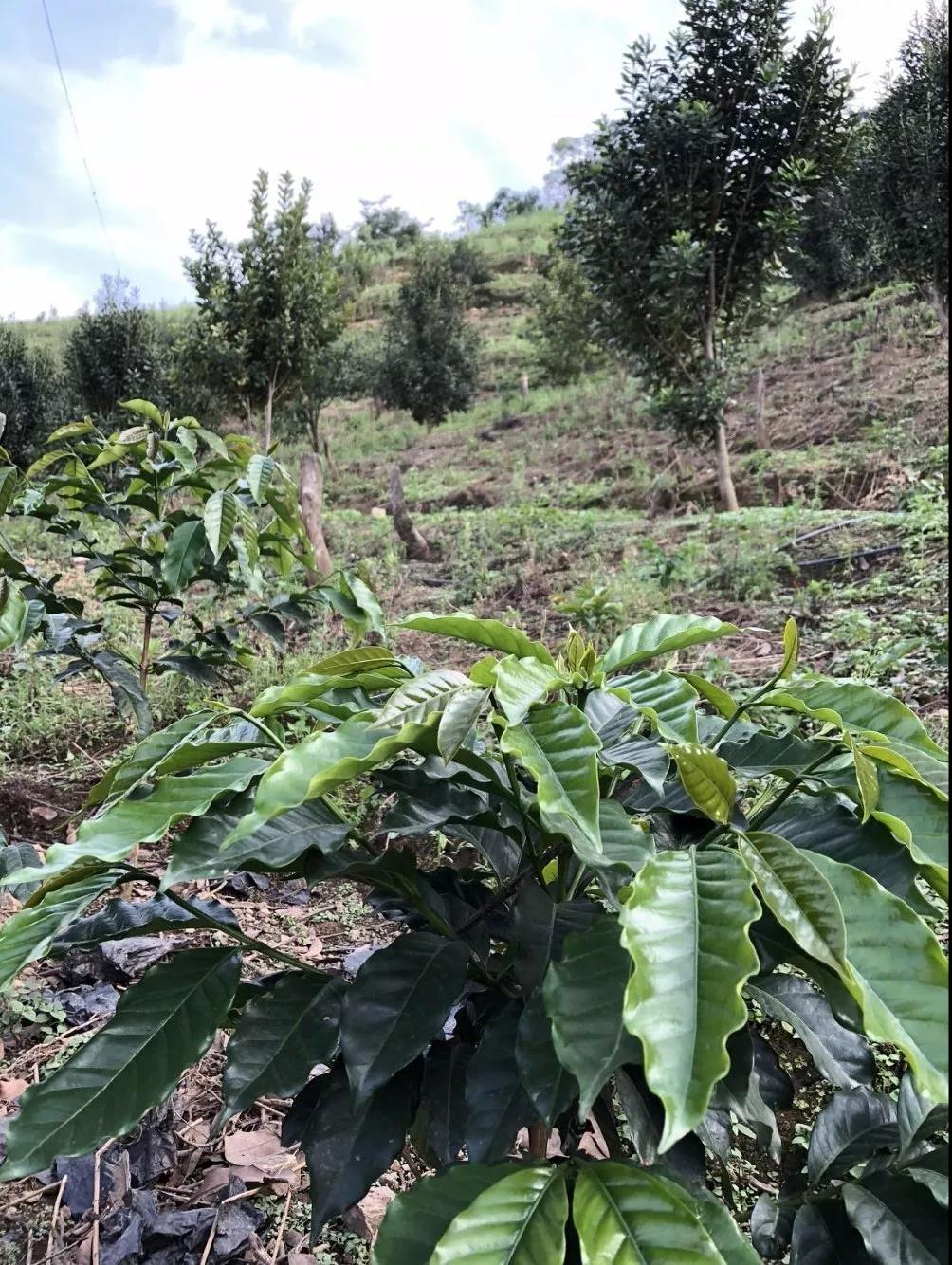
Our own coffee, this is a tin pickup, planted in 2017.
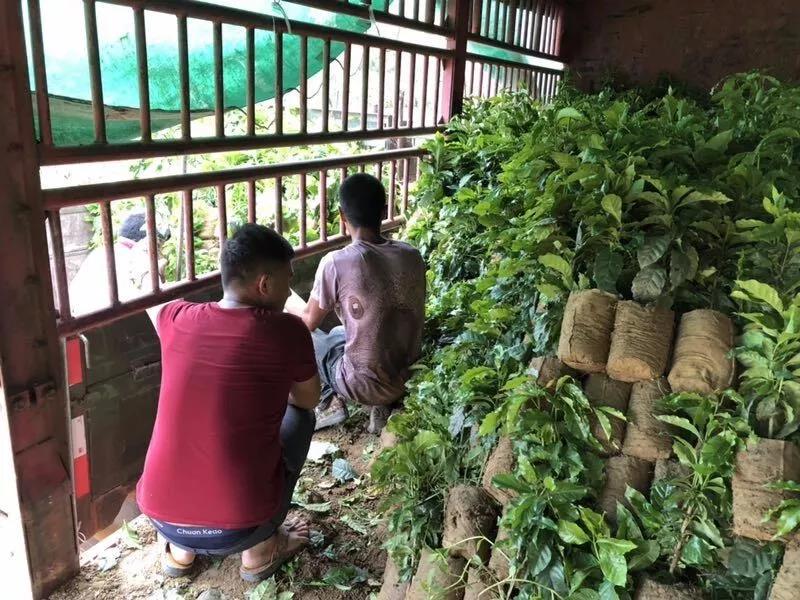
The thriving coffee seedlings are ready for transplant.
The workers loaded the coffee seedlings to the mountains for transplant
Taobao link: https://item.taobao.com/item.htm?spm=a1z10.3-c-s.w4002-15673140470.10.4b2a1b50mz0Wnk&id=535615170690
Yunnan small grain coffee Baoshan old variety iron pickup fresh baked Yunnan boutique single hand-flushed coffee beans
Important Notice :
前街咖啡 FrontStreet Coffee has moved to new addredd:
FrontStreet Coffee Address: 315,Donghua East Road,GuangZhou
Tel:020 38364473
- Prev

How to bake Baoshan small Coffee _ Baoshan Iron Card brewing suggestion _ Baoshan Coffee
Professional coffee knowledge exchange more coffee bean information please follow the coffee workshop (Wechat official account cafe_style) A cup of good coffee, not necessarily fine coffee. What is high-quality coffee, in my opinion, this cup of coffee can be pleasant, healthy without defective beans, is a cup of fine coffee. Every bean is from planting, picking, to processing, drying, to baking and cooking.
- Next
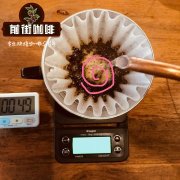
Baoshan small Coffee Bean Brand recommendation _ what are the local coffee shops in Baoshan _ Baoshan coffee brand
Professional coffee knowledge exchange more coffee bean information please follow the coffee workshop (Wechat official account cafe_style) Today, let's go to explore the local cafes in Baoshan! Baoshan is one of the few coffee growing areas in China, with a history of nearly a hundred years. Thanks to the geographical environment of Lujiangba, Baoshan small grain coffee with excellent quality has been designated as a country.
Related
- Detailed explanation of Jadeite planting Land in Panamanian Jadeite Manor introduction to the grading system of Jadeite competitive bidding, Red bid, Green bid and Rose Summer
- Story of Coffee planting in Brenka region of Costa Rica Stonehenge Manor anaerobic heavy honey treatment of flavor mouth
- What's on the barrel of Blue Mountain Coffee beans?
- Can American coffee also pull flowers? How to use hot American style to pull out a good-looking pattern?
- Can you make a cold extract with coffee beans? What is the right proportion for cold-extracted coffee formula?
- Indonesian PWN Gold Mandrine Coffee Origin Features Flavor How to Chong? Mandolin coffee is American.
- A brief introduction to the flavor characteristics of Brazilian yellow bourbon coffee beans
- What is the effect of different water quality on the flavor of cold-extracted coffee? What kind of water is best for brewing coffee?
- Why do you think of Rose Summer whenever you mention Panamanian coffee?
- Introduction to the characteristics of authentic blue mountain coffee bean producing areas? What is the CIB Coffee Authority in Jamaica?

